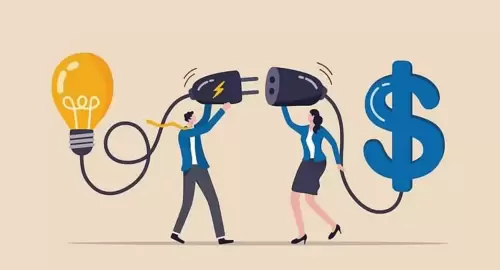 |
|
 |
|
 |
|
 |
|
 |
|
 |
|
 |
|
 |
|
 |
|
 |
|
 |
|
 |
|
 |
|
 |
|
 |
|
Cryptocurrency News Articles
On March 25, 2025, Nigeria took a decisive step toward regulating its fast-growing cryptocurrency sector.
May 09, 2025 at 10:30 pm
On March 25, 2025, Nigeria took a decisive step toward regulating its fast-growing cryptocurrency sector. President Bola Tinubu signed the long-awaited Investments and Securities Act (2025), replacing the outdated 2007 version.

On March 25, 2025, President Bola Tinubu of Nigeria signed the long-awaited Investments and Securities Act (2025), replacing the 1999 version and bringing a key change: the legal recognition of digital assets as securities.
The Act, which comes after years of discussion and a pressing need for a clear regulatory framework, grants the Securities and Exchange Commission (SEC) wide-ranging authority over the issuance, trading, and promotion of digital assets, essentially legalising crypto under capital market rules.
The SEC can now monitor the activities of securities exchanges, conduct audits, impose penalties, suspend company operations, and even remove their executives. While the law legitimises crypto, questions remain over how its enforcement will unfold.
A framework years in the making
The legal status of crypto in Nigeria has been a subject of debate for some time. In 2021, the Central Bank of Nigeria (CBN) ordered banks to close accounts of crypto startups, effectively shutting them out of the formal financial system. In response, startups began routing payments through offshore banking partners or pivoting to peer-to-peer (P2P) models for handling user funds.
The SEC also began issuing circulars warning against pyramid schemes disguised as crypto investment and launched the Accelerated Regulatory Incubation Programme (ARIP) in June 2024—a regulatory sandbox for digital innovation. However, despite these efforts, no legislation was passed to provide a complete picture of crypto regulation in the country.
The new Act, which is comprised of 226 pages and replaces the 1999 version of the Investments and Securities Act, introduces a definition of "digital asset" as "a digital token that represents assets such as a debt or equity claim on the issuer or a mineral right, or an interest in a pool of assets or in a venture capital or private equity fund, or an asset that is issued on a blockchain."
This definition encompasses cryptocurrencies like Bitcoin and Ether, stablecoins, security tokens, and potentially tokenised real-world assets used as investments or that hold trading value.
The Act also grants the SEC oversight over token issuers, including meme coin creators and projects raising funds through utility or investment-based coins (initial coin offerings). Those creating and promoting tokens with trading value or intended to act as stores of value will now face tighter regulatory scrutiny.
Get the best African tech newsletters in your inbox
Implications for startups and foreign operators
Prior to the signing of the ISA, the SEC mandated digital asset exchanges and foreign operators to establish a physical presence in Nigeria to ensure closer supervision. With full regulatory backing now in place, that requirement is likely to be enforced more firmly.
This decision has raised concerns for local startups who heavily rely on infrastructure providers like Stellar, Ethereum, Solana, Polygon, and developer tools such as Alchemy or Infura.
For instance, Web3 startups like Sytemap, a Nigerian Web3 real estate marketplace, utilize the Stellar blockchain to store property and transaction records. Others rely on foreign APIs and infrastructure to provide crypto wallets, blockchain payments, run analytics, and manage core backend services.
Startups build their decentralised finance (DeFi) apps on low-cost blockchains like Stellar. They also integrate stablecoins like USDC and USDT by connecting to the infrastructure provided by Circle and Tether, two of the world’s largest stablecoin providers. Foreign infrastructure providers offer the building blocks that make local startups viable.
But the obligation of these foreign infrastructure providers to register in order to operate locally will depend on how the SEC enforces its mandate. If the regulator imposes strict requirements on foreign players, it could trigger resistance, potentially affecting local developers who depend on their tools and networks.
"We built our tech stack on Stellar because of the immutability advantage, plus we wanted to limit how often we move things around," said Ndifreke Ikokpu, CTO and co-founder of Sytemap, a Nigerian blockchain-based real estate marketplace. "We are compliant with local consumer and data privacy laws, but the provisions of the Act don’t quite apply to us now, unless we start trading. And that’s not something we’re thinking about."
Some of these blockchain networks, which provide funding to Nigerian Web3 builders—a crucial alternative during macroeconomic slowdowns—include Stellar through its Stellar Development Foundation scheme, Sui, Solana, and Lisk.
However, regulating foreign blockchain infrastructure players is a two-sided coin.
The Stellar blockchain has a utility token called $XLM. If $XLM is classified as a ‘security’ in Nigeria, based on the SEC’s definition, compliance obligations would generally fall on several parties.
Crypto exchanges that facilitate the buying, selling, or trading of $XLM would be classified as securities exchanges and must comply with local laws. Retail investors could be paying tax on capital gains—profits made from selling assets like $XLM at a higher price than they bought it—if the tax
Disclaimer:info@kdj.com
The information provided is not trading advice. kdj.com does not assume any responsibility for any investments made based on the information provided in this article. Cryptocurrencies are highly volatile and it is highly recommended that you invest with caution after thorough research!
If you believe that the content used on this website infringes your copyright, please contact us immediately (info@kdj.com) and we will delete it promptly.
-

- pre-emptive market-making activity by Cumberland DRW
- May 11, 2025 at 02:40 pm
- Based on the latest analysis of Lookonchain, one wallet associated with the TRUMP token group sent a whopping 3.5 million TRUMP tokens on May 10, 2025. That stash is valued at roughly $52.66 million across multiple exchange platforms.
-

-

- This report by Tiger Research examines Korean users' onchain activities in the Ethereum ecosystem during Q1 2025.
- May 11, 2025 at 02:35 pm
- The Korean cryptocurrency market continues its expansion from centralized exchanges to onchain environments. Multiple factors drive this shift, including limited investment opportunities in the domestic market.
-
![Polkadot [DOT] Price Rose Almost 10% Aiming to Reclaim the Critical $5.30 Level Polkadot [DOT] Price Rose Almost 10% Aiming to Reclaim the Critical $5.30 Level](/assets/pc/images/moren/280_160.png)
-

-

-

-

-























































![Polkadot [DOT] Price Rose Almost 10% Aiming to Reclaim the Critical $5.30 Level Polkadot [DOT] Price Rose Almost 10% Aiming to Reclaim the Critical $5.30 Level](/uploads/2025/05/11/cryptocurrencies-news/articles/polkadot-dot-price-rose-aiming-reclaim-critical-level/image_500_300.webp)




